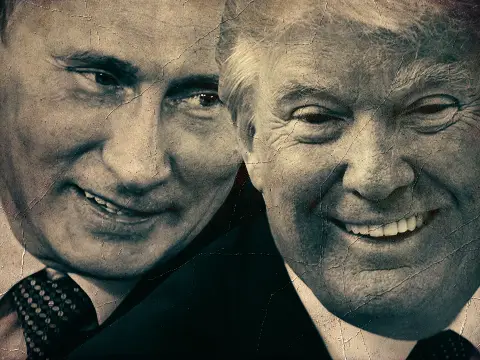Donald Trump, the sitting President of the United States and self-proclaimed dealmaker, who just a few months ago loudly promised to end the war in Ukraine “within 24 hours,” suddenly sounds very different. In a recent Truth Social post on May 26, he cautiously distances himself from Vladimir Putin – the autocrat he once called “brilliant” – now calling him “absolutely crazy.” “Missiles and drones are being shot into cities in Ukraine for no reason whatsoever,” Trump writes, as if he had never shown understanding for Putin’s power politics.

But behind the outrage, there is no strategic plan – only one thing: the attempt to escape responsibility. “This is Zelenskyy’s, Putin’s, and Biden’s war – not Trump’s,” the President writes, positioning himself not as a peacemaker but as an observer. The man who claimed to know everything better has suddenly become a bystander to his own failure.
Trump’s now "supposed" distancing from Putin seems less like a late realization and more like calculated self-preservation. In a war-weary America, he casts himself as a foreign policy firefighter – even though he was the one who openly admired Putin’s authoritarian style for years. And even now, he continues to refuse Ukraine any credible support.
Trump’s words read like the admission of a lie: the 24-hour promise was a performance – nothing more. Now the President is left with a cynical attempt at explanation that makes one thing painfully clear: this is not the man who brings peace. This is the man who promised it – and then postponed it.
